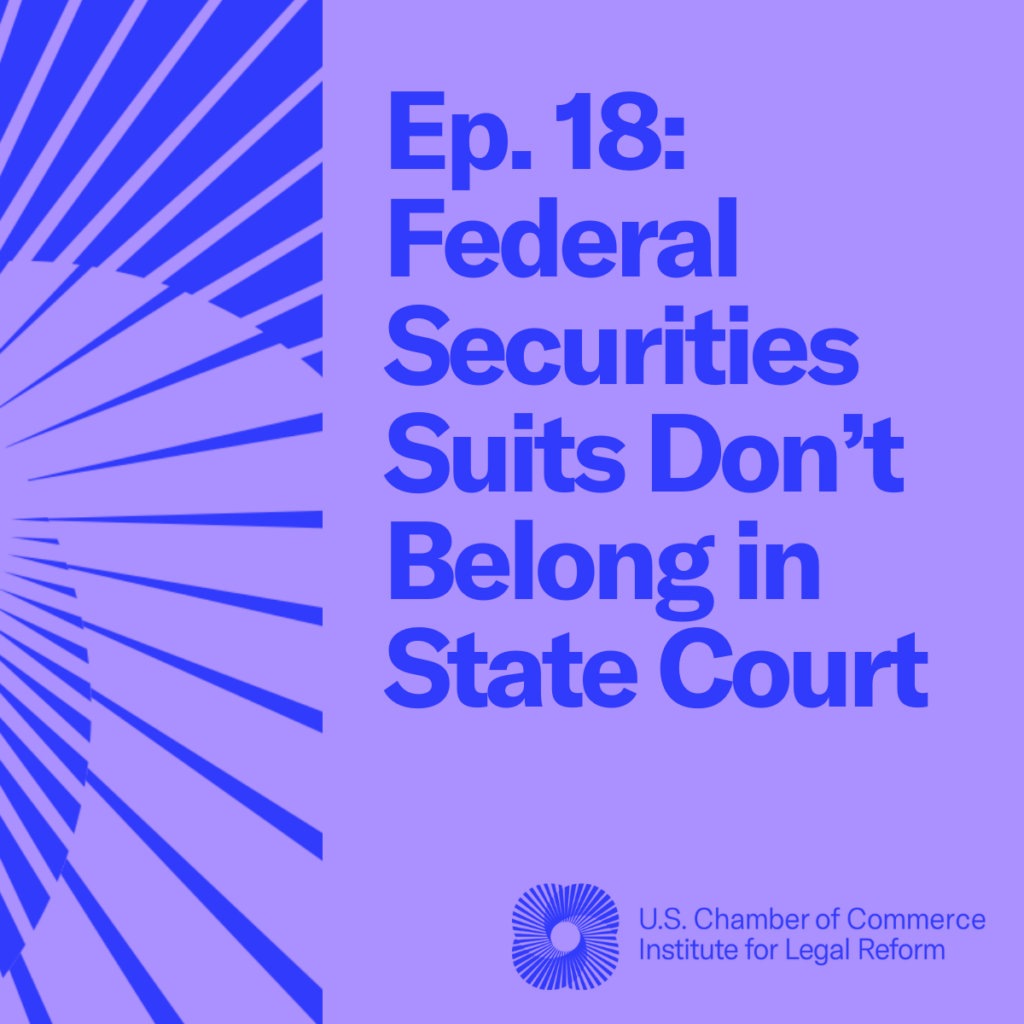Finds $701 Billion Lost in 18-year Span, Questions ‘Fraud-On-The-Market’ Theory
WASHINGTON, D.C.—Securities class action lawsuits cost investors nearly $39 billion per year, while recovering only $5 billion, according to a study released today by Navigant Consulting on behalf of the U.S. Chamber Institute for Legal Reform (ILR). The mere filing of a lawsuit erases 4.4% of shareholder value.
Controlling for other factors affecting shareholder value, the study measured stock price throughout the lawsuit process, litigation costs including lawyers’ fees, the distribution of settlement funds, trading practices of class members during the litigation class period, and the post-lawsuit value of the company.
“This study validates years of academic consensus that securities class action lawsuits harm the very people they are supposed to help – America’s investors,” said Lisa A. Rickard, president of ILR.
The research also addresses the “fraud-on-the-market” doctrine which underpins securities class action litigation, and is the central issue in the Halliburton v. Erica P. John Fund case before the Supreme Court next week.
Navigant analyzed actual trading patterns of class claimants that were typical of all of the settlements during the study’s time period. The researchers found that claimants who were the largest settlement beneficiaries traded hundreds of times during the class period, thus undermining the notion that investors rely on the integrity of the market price.
The Navigant study concludes: “Even when allegedly affected shareholders are eligible to share in a settlement (which is almost always through settlement as trials rarely occur), the distribution of settlement dollars back to class members bears little relationship to the economic theory behind the presumption of reliance used to certify the class.”
The findings echo broad research on securities class action lawsuits by academics from Columbia, Stanford, Georgetown and elsewhere that concluded these cases are nothing more than one set of investors suing another set of investors, with huge transaction costs extracted by plaintiffs’ lawyers.
The Navigant research will be presented at a U.S. Chamber of Commerce symposium co-sponsored by the U.S. Chamber Institute for Legal Reform, the National Chamber Litigation Center, and the Center for Capital Markets Competitiveness.
ILR seeks to promote civil justice reform through legislative, political, judicial, and educational activities at the national, state, and local levels.
The U.S. Chamber of Commerce is the world’s largest business federation representing the interests of more than 3 million businesses of all sizes, sectors, and regions, as well as state and local chambers and industry associations.



